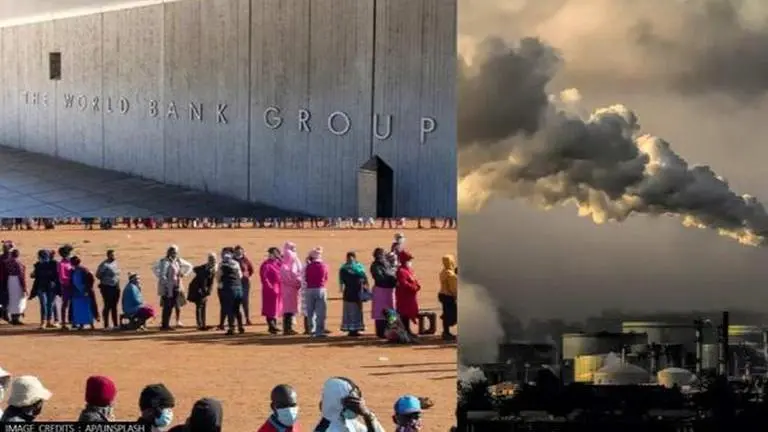Updated 25 September 2021 at 17:05 IST
World Bank to assist Ghana in eliminating air pollution to improve public health
The research had found that about 100% of Ghana citizens are exposed to levels of air pollution which are much higher than World Health Organisation limits
- World News
- 2 min read

The World Bank’s country director for Ghana, Pierre Laporte announced on Friday that the World Bank will assist Ghana in reducing air pollution to improve public health. As per the website Ghana Business News, Laporte made this statement during an event of the establishment of an information-sharing workshop on pollution management and environmental health on Friday, September 24, in Ghana's capital, Accra.
The research had found that about 100% of Ghana citizens are exposed to the levels of air pollution which are much higher than World Health Organisation (WHO) limits, yet, attempt to minimise the air pollution in the country has always been inadequate. Laporte further stated that air pollution is dangerous because it causes or contributes to heart attacks, strokes, lung cancer, and respiratory illnesses. It is the country's sixth-highest overall risk of death.
As per the CGTN website, Laporte said that the World Bank had partnered with the Environmental Protection Agency of Ghana to conduct a pilot program of pollution management and environmental health initiative in Ghana which aims to reduce the nation's atmospheric air pollution levels and improves the quality of air. He went on to say that the two organisations will continue to work on a comprehensive air quality control plan for Accra.
Consequences of Ghana's air pollution
According to the website GhanaWeb, air pollution in the country has been identified as the top environmental threat to public health. As per Bank Country Environmental Analysis (CEA), it is revealed that around 16,000 has premature deaths have occurred due to air pollution. Out of the total 16,000 annual premature deaths, nearly 8,500 have occurred in the urban cities while 7,600 have occurred in the rural areas. In Ghana, the air pollution mortality rate includes both outdoor as well as indoor air pollution which is basically the air pollution created from households. Domestic air pollution comprises nearly 66% of the deaths in rural Ghana.
Advertisement
The Ghana Business News further reports that a study released on May 30, 2019, in Boston, USA, states that cooking fuels that are utilised in most Ghanaian houses, such as charcoal and firewood, are said to be the source of domestic air pollution. The study further reveals that domestic air pollution caused by the usage of solid fuels for cooking, such as wood, coal, charcoal, as well as other biomass, resulted in almost 10,000 fatalities in Ghana every year.
(Image: AP/ Unspalash)
Published By : Anwesha Majumdar
Published On: 25 September 2021 at 17:05 IST
